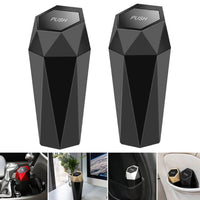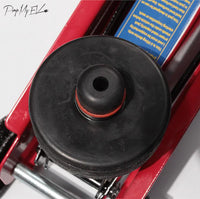Tesla has transformed the car sector and given environmental responsibility first priority in its unwavering search for sustainable energy solutions. High-performance battery packs are the foundation of every Tesla car, and as the market for EVs grows, the issue of environmentally friendly battery disposal becomes more and more important. We explore the nuances of Tesla's innovative battery pack recycling process in this blog post, which highlights the company's dedication to reducing its environmental impact.
Tesla's Reuse Battery Recycling Process: A Closed-Loop Method for Sustainability
Effective and sustainable battery and recycling solutions is becoming more and more important as electric cars (EVs) gain popularity. Leading EV manufacturer Tesla has made great progress toward creating a closed-loop battery recycling system. This blog article will examine Tesla's cutting-edge strategy for recycling batteries and how it may affect electric vehicles in the future.
The Value of Reusing Batteries
As the number of electric vehicles on the road rises worldwide, it is critical to address how battery disposal affects the environment. Tesla is aware that its electric cars are more environmentally friendly and long-lasting off the road. Preserving important resources and minimizing technological waste can be achieved through the efficient and conscientious management of spent batteries.
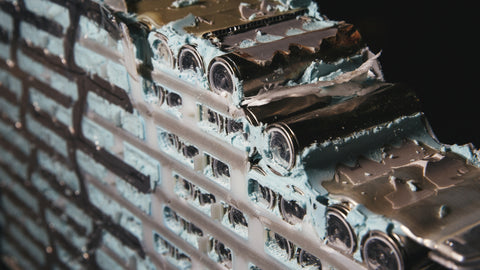
Tesla's Method for Recycling Batteries:
Tesla recycles batteries using a thorough and cutting-edge strategy that prioritizes sustainability e waste, and efficiency. Below is a summary of Tesla's recycling procedure as of right now:
Transportation and Collection: The first step in the process ev battery mine is gathering old batteries from electric vehicles that have been returned as well as those that are nearing the end of their useful lives. Tesla makes sure that these batteries are transported to recycling centers in a secure manner.
Battery Disassembly: Batteries are carefully disassembled at the recycling facility. To extract rich elements like cobalt, nickel, and lithium—all essential parts of batteries used in electric vehicles—technicians must work carefully.
Material Separation | Shredding: Tesla employs advanced methods to effectively separate the recovered materials after disassembly. To recycle each component and support the closed-loop lifecycle of these priceless resources, separation is essential.
Reprocessing Black Mass Processing: To meet the strict requirements needed for reuse in the creation of new batteries and electronics, the recovered materials go through reprocessing. To extract the important metals, the shredded materials go through many hydrometallurgical procedures.
This method is less harmful to the environment than conventional smelting because it works with aqueous solutions and doesn't require high temperatures. Tesla makes use of state-of-the-art technologies to guarantee the integrity and quality of recycled materials.
Reduction of Environmental Impact: Tesla greatly lessens the environmental impact of battery manufacture by using recycled materials in the production of new batteries, hence reducing its dependency on raw resources. This closed-loop strategy fits nicely with Tesla's overarching goal of building a sustainable future.
Recycling and Repurposing: After the metals have been separated, they are cleaned and put to use again to make new battery cells, anodes, and cathodes.
Advantages of the Battery Recycling Program by Tesla:
Tesla's closed-loop recycling method has several advantages, such as:
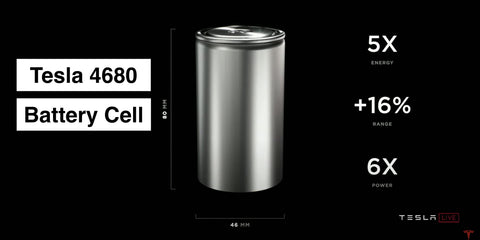
(Source)
Resource Conservation: By deliberately preserving priceless resources onsite recycling like rare metals, Tesla's recycling method lessens the need for intensive mining and the environmental damage that comes with extracting raw materials.
Energy Efficiency: Compared to the mining and processing of raw materials, recycling batteries uses less energy. Beyond just its cars, Tesla is dedicated to energy efficiency throughout the company at every stage of its product lifecycle.
Contribution to the Circular Economy: Tesla's focus on a closed-loop strategy helps to create a circular economy, which reduces waste and promotes sustainability by continuously reusing and recycling materials.
Diminished environmental impact: Tesla's method minimizes energy consumption and greenhouse gas emissions related to mining and refining by reducing the requirement for virgin materials.
Reduced production costs: By recycling capacity and reducing the cost of manufacturing new batteries, the use of recycled materials can help make electric vehicles (EVs) more accessible to the general public.
Closed-loop system: Used lithium batteries are ethically recycled and kept out of landfills thanks to Tesla's closed-loop procedure.
The Issue with Conventional Battery Recycling
Most electric vehicles (EVs) run on lithium-ion batteries, which are rich in important metals like nickel, cobalt, and lithium. Traditional recycling techniques recycle batteries, however, are frequently ineffective and harmful to the environment. These procedures usually entail high-temperature smelting, which can lead to the loss of priceless materials and the production of hazardous gases.
Battery Recycling's Future
For the EV sector, Tesla's dedication to battery recycling is establishing a significant precedent. The long-term sustainability of electric mobility will depend on effective and sustainable battery recycling as the demand for EVs rises.
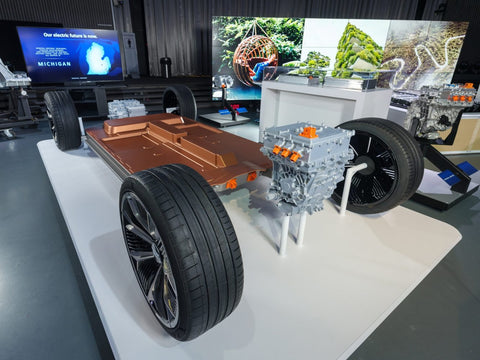
(Source)
Tesla's recycling procedure is continuously being improved and innovated. We may anticipate the development of even more eco-friendly and efficient techniques ev battery recycling in the future. This will make it more likely that EVs will be a sustainable transportation option for the future in addition to being a greener option than conventional gasoline-powered cars.
Some Queries About Tesla Batteries
Can lithium-ion batteries be recycled?
The recyclability of lithium-ion batteries, used in electric vehicles, is questioned due to their environmental impact. The good news is that lithium-ion batteries are recyclable. Used lithium ion recycling batteries can be recycled to recover lithium, cobalt, and nickel, lowering raw material consumption and environmental impact. Tesla is pioneering battery recycling, helping electric vehicles maintain their sustainability.
How long does a Tesla battery last?
Understanding electric car battery lifespan is vital to assessing sustainability. Tesla electric car batteries are durable, however, usage, driving conditions, and maintenance affect their lifespan. Newer Tesla models include extensive battery management features that maximize performance and lengthen battery life. Tesla automobiles' lifetime increases their value and decreases battery replacements and environmental impact.
How are Tesla batteries recycled?
Tesla recycles batteries using advanced technology and environmental care. Used batteries are collected and transported to recycling facilities. Technicians meticulously deconstruct these batteries to remove cobalt, nickel, and lithium. Reprocessed materials meet strict quality standards for battery manufacture. Tesla's closed-loop recycling ensures a sustainable battery lifecycle, supporting its environmental purpose.
The modules of lithium are shredded and crushed
In the complicated recycling process, lithium-ion battery modules are shredded and crushed. Breaking components into manageable sizes helps separate materials. Shredding and crushing battery modules expose their precious materials for recycling. Tesla uses innovative technologies to efficiently and well recycle lithium-ion batteries and precisely extract lithium and other components for battery manufacture. Tesla's careful recycling of lithium components shows its commitment to reducing waste, preserving resources, and promoting a circular battery production and disposal process.
Conclusion:
Tesla's creative use battery recycling method demonstrates the company's commitment to environmentally responsible business practices. Tesla has taken a proactive stance in addressing the issues surrounding electronic waste and is promoting a circular economy by implementing a closed-loop system. Tesla is pioneering environmentally responsible practices by developing tailor recycling solutions for scrapped lithium-ion batteries, ensuring that each Tesla battery pack contributes to a sustainable and circular approach through Tesla battery recycling.
Tesla's dedication to responsible battery recycling highlights the company's role as a leader in the automotive industry and as a trailblazer in creating a cleaner and greener future for everybody, as it continues to lead the charge in electric car innovation.
 :
:  :
: 


